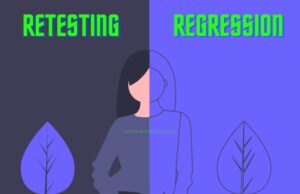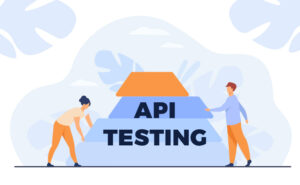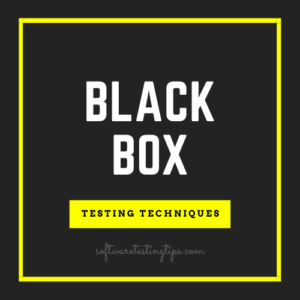Crack Your Salesforce Testing Interview: Top 21 Questions and Answers
Salesforce is a powerful customer relationship management (CRM) tool that is widely used by businesses of all sizes. As with any software application, it’s important to thoroughly test Salesforce to ensure that it’s working as expected.

In this article, we’ll explore the top 20 Salesforce testing interview questions and answers.
1. What is Salesforce testing, and why is it important?
Salesforce testing is the process of verifying that the Salesforce application meets the specified requirements and works as expected. It is important because it helps to identify defects and other issues that could impact the performance and reliability of the application.
2. What are the different types of Salesforce testing?
The different types of Salesforce testing include unit testing, integration testing, regression testing, user acceptance testing, and performance testing.
3. What is unit testing in Salesforce?
Unit testing in Salesforce is the process of testing individual units of code to ensure that they function as expected. It is typically performed by developers during the development process.
4. What is integration testing in Salesforce?
Integration testing in Salesforce is the process of testing how various components of the Salesforce application work together. It is typically performed after the individual components have been tested through unit testing.
5. What is regression testing in Salesforce?
Regression testing in Salesforce is the process of testing the application to ensure that new changes or updates have not introduced any new defects or issues.
6. What is user acceptance testing in Salesforce?
User acceptance testing in Salesforce is the process of testing the application to ensure that it meets the needs and requirements of the end-users.
7. What is performance testing in Salesforce?
Performance testing in Salesforce is the process of testing the application to ensure that it can handle a high volume of users and transactions without any performance issues.
8. What are some common Salesforce testing tools?
Some common Salesforce testing tools include Selenium, JMeter, Apache SOAP UI, and Salesforce’s own test automation framework, known as Apex Test Framework.
9. What is Apex Test Framework?
Apex Test Framework is Salesforce’s own test automation framework. It is used to write and run unit tests for Apex code.
10. What is SOQL, and how is it used in Salesforce testing?
SOQL stands for Salesforce Object Query Language. It is used to query data from Salesforce objects and is often used in Salesforce testing to verify that the application is storing and retrieving data correctly.
11. What is the difference between SOQL and SQL?
While both SOQL and SQL are used for querying data, SOQL is specific to Salesforce objects and their relationships.
12. What is Apex, and how is it used in Salesforce testing?
Apex is a programming language used to develop applications on the Salesforce platform. It is often used in Salesforce testing to write and run test scripts.
13. What is the difference between Apex and Java?
While both Apex and Java are object-oriented programming languages, Apex is specific to the Salesforce platform and includes additional features and functionality to interact with Salesforce objects.
14. What is a test case in Salesforce testing?
A test case in Salesforce testing is a set of steps used to verify that a specific function or feature of the application is working as expected.
15. What is a test plan in Salesforce testing?
A test plan in Salesforce testing is a document that outlines the overall testing strategy and approach for a specific project or release.
16. What is a test suite in Salesforce testing?
A test suite in Salesforce testing is a collection of test cases that are grouped together based on their functionality or the specific features they are testing.
17. What are reports in Salesforce?
In Salesforce, reports are a powerful tool that allow users to analyze data stored in the system. A report is a customizable view of data that can be displayed in a tabular or graphical format, and can be filtered and sorted based on specific criteria.
Salesforce reports can be created using a simple drag-and-drop interface, which allows users to select the fields they want to include in the report, as well as the type of data visualization they want to use. Reports can also be customized with filters, groupings, and subtotals, which allow users to drill down into specific subsets of data.
There are several different types of reports that can be created in Salesforce, including:
- Tabular Reports: These reports display data in a table format, with each row representing a record in the system.
- Summary Reports: These reports display data in a table format, but also include subtotals and summary information based on specific grouping criteria.
- Matrix Reports: These reports display data in a grid format, with both row and column groupings. They are particularly useful for analyzing data across multiple dimensions.
- Joined Reports: These reports allow users to combine data from multiple reports into a single view. They are particularly useful for analyzing related data from different objects in the system.
- Custom Reports: These reports can be fully customized to meet the specific needs of a business. Users can select the fields they want to include, as well as the data visualization and grouping options.
Salesforce reports can be shared with other users or groups within the system, and can also be exported to Excel or other formats for further analysis. They are a powerful tool for gaining insights into business performance, identifying trends, and making data-driven decisions.
18. List of Salesforce Automation Tools
Salesforce provides a variety of automation tools to help businesses streamline their workflows and improve productivity. Here are some of the top Salesforce automation tools:
- Salesforce Workflow: Workflow is a built-in Salesforce automation tool that allows users to create and automate business processes. It enables users to define rules that trigger certain actions or tasks, such as sending email notifications or updating record fields.
- Process Builder: Process Builder is a more advanced automation tool that allows users to create complex processes using a visual interface. It can be used to automate tasks such as updating records, sending emails, and creating tasks.
- Apex Triggers: Apex Triggers are used to execute custom code based on specific events or conditions. They can be used to automate tasks such as sending emails, updating records, or creating new records.
- Visual Workflow: Visual Workflow is a drag-and-drop tool that allows users to create complex workflows without having to write any code. It can be used to automate tasks such as creating records, updating records, and sending emails.
- Approval Processes: Approval Processes allow users to automate the approval of records, such as opportunities or cases. Users can define the criteria for approval, as well as the individuals who are responsible for approving records.
- Lightning Process Builder: Lightning Process Builder is a newer version of Process Builder that is designed to work specifically with the Salesforce Lightning interface. It allows users to create and automate processes using a more intuitive interface.
- Einstein Automate: Einstein Automate is a suite of automation tools that uses artificial intelligence (AI) to automate complex business processes. It includes tools such as Flow Builder, which allows users to create automated workflows, and Einstein Next Best Action, which uses AI to recommend the best next action for a given situation.
- AppExchange: AppExchange is Salesforce’s marketplace for third-party apps and add-ons. Many of these apps are designed to help automate specific business processes, such as marketing automation, sales automation, or customer service automation.
These are just a few of the many automation tools available in Salesforce. By using these tools, businesses can automate many of their day-to-day processes, freeing up time and resources to focus on more important tasks.
19. What is Salesforce Sales Cloud?
Salesforce Sales Cloud is a customer relationship management (CRM) platform designed to help businesses manage their sales processes. It includes tools for lead and opportunity management, forecasting, and collaboration, as well as analytics and reporting capabilities. Sales Cloud is designed to help businesses improve their sales performance, increase productivity, and provide a better customer experience.






